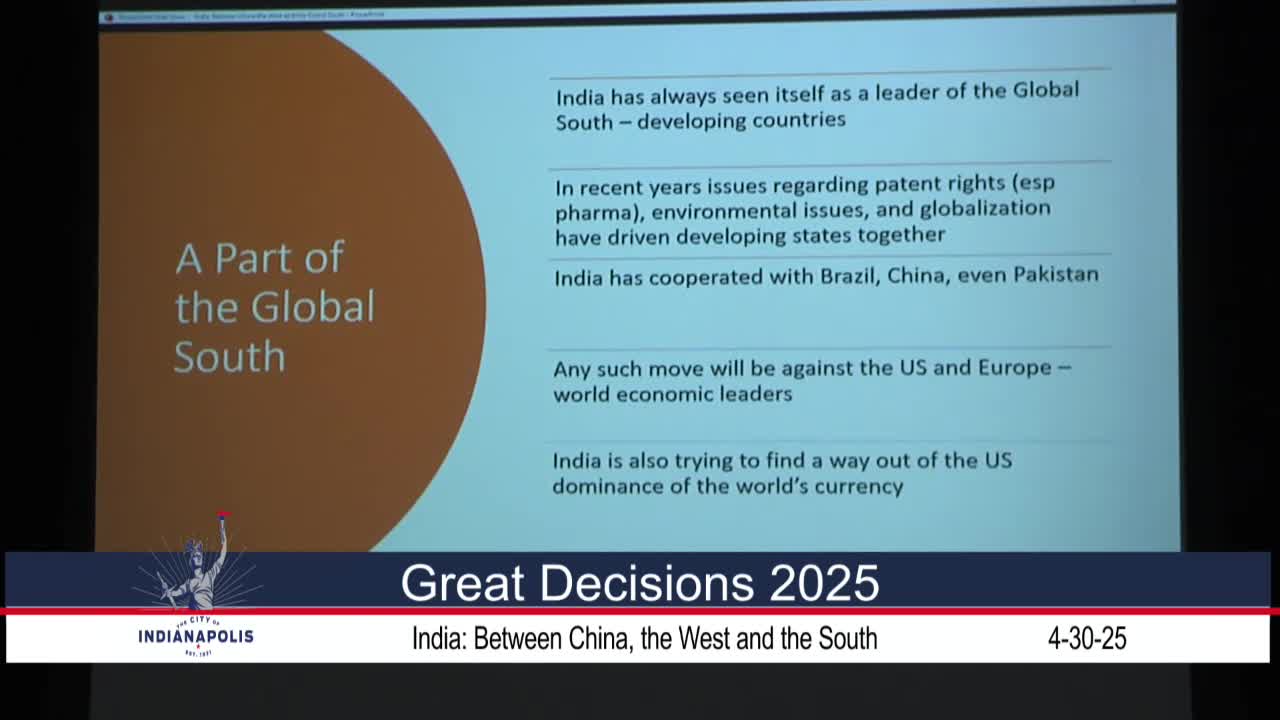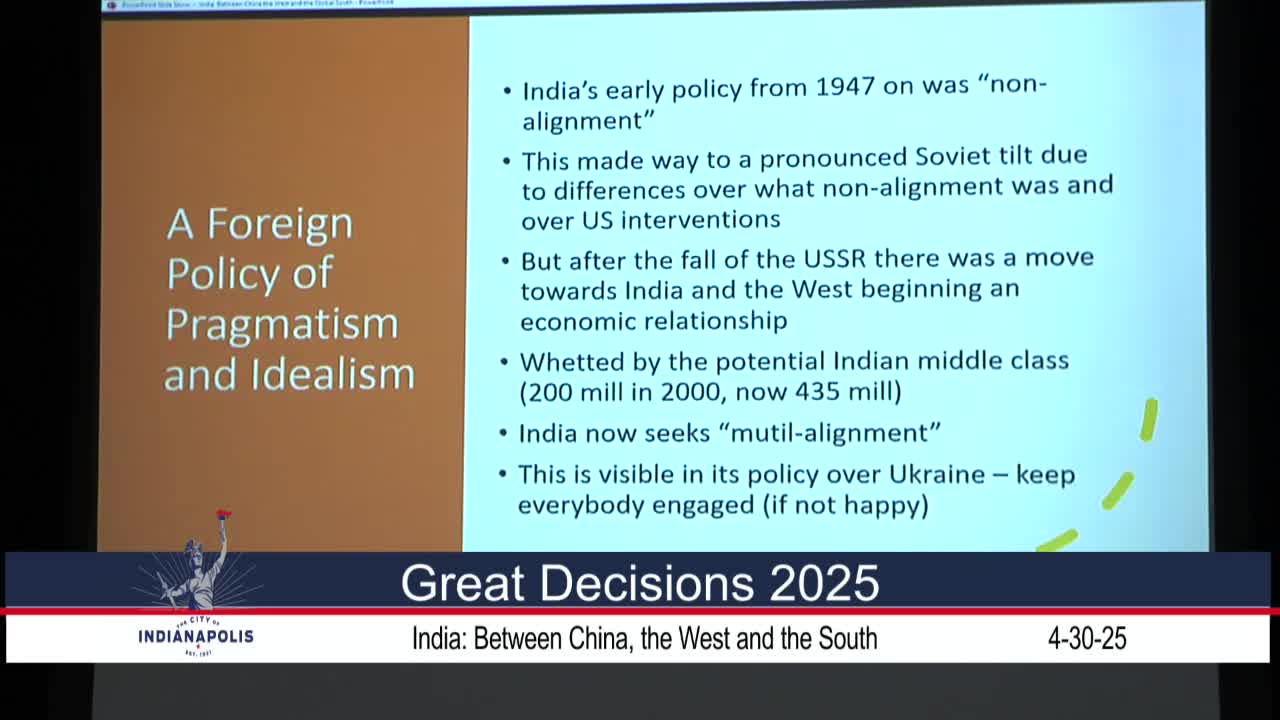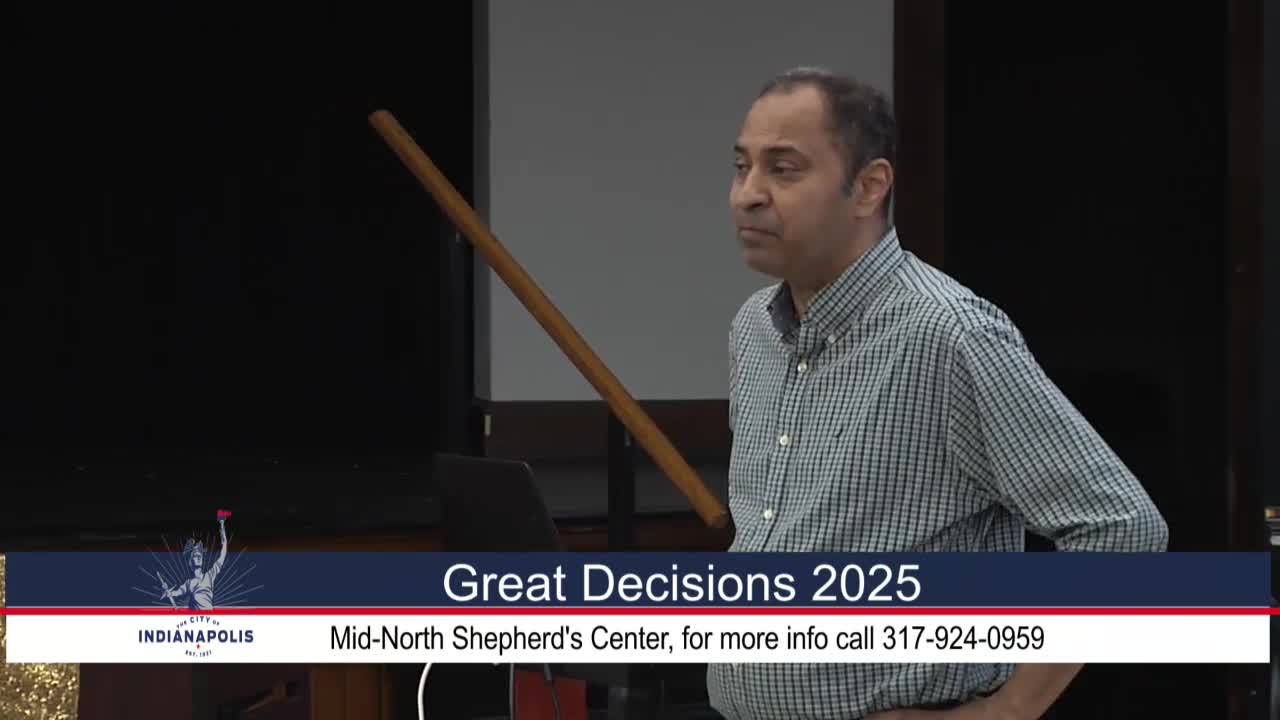Article not found
This article is no longer available. But don't worry—we've gathered other articles that discuss the same topic.

Lecture: India shows economic growth and global pharma role but faces severe air pollution, climate and development challenges

Professor warns India—27s democratic institutions and minorities face increased pressure under BJP

